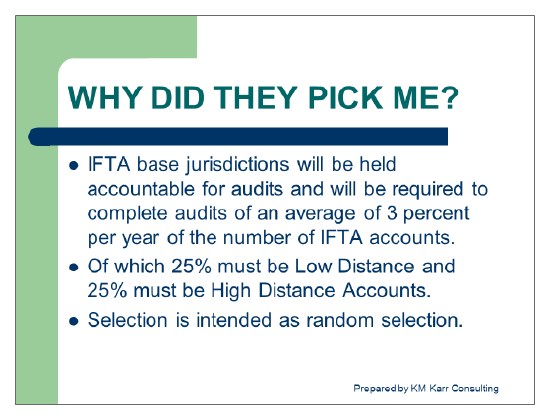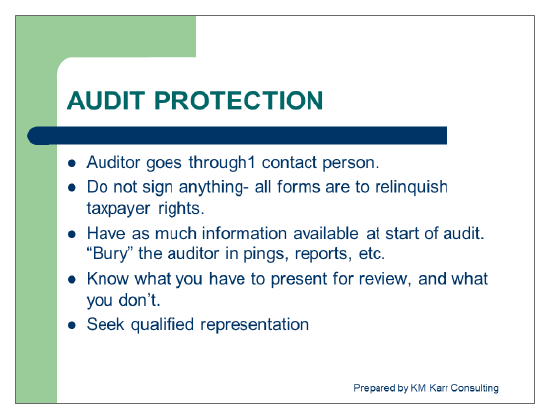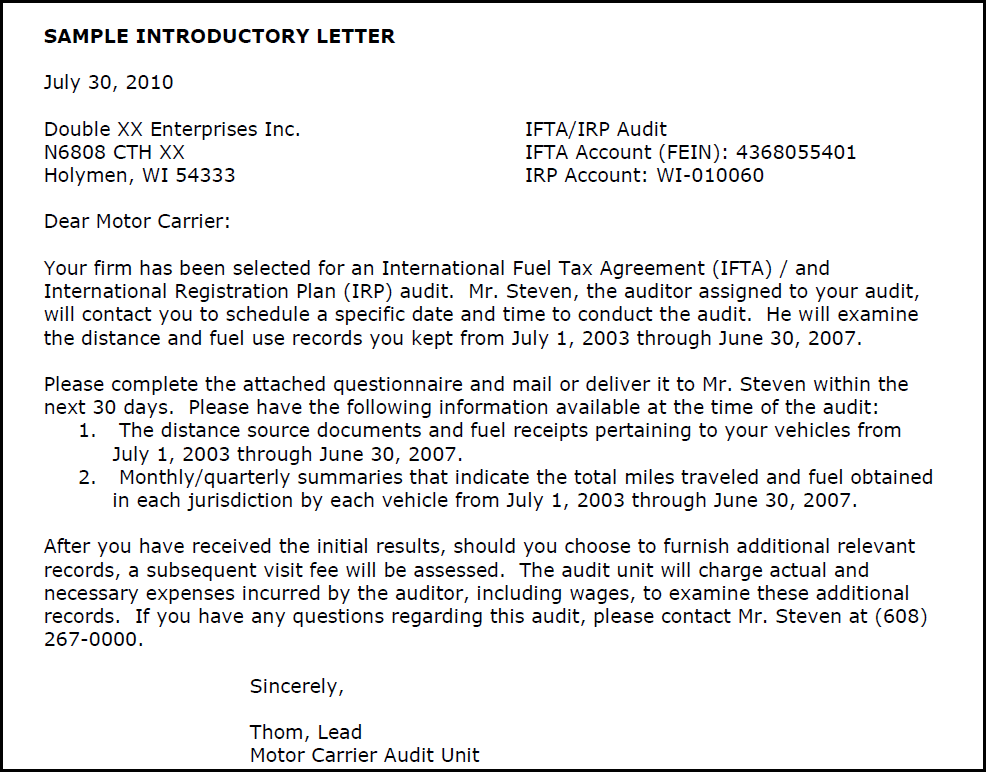Initial Request
Initial Request
 If you are selected for an audit, your jurisdiction will initially contact you via posted letter. The letter often features:
If you are selected for an audit, your jurisdiction will initially contact you via posted letter. The letter often features:
-
the name of the auditor
-
notification that the auditor will contact you within 30 days
-
a request for preliminary information
-
a request to have subsequent information prepared in advance of the scheduled audit.
The information requested may include fuel receipts, mileage summaries, throughway receipts, tax returns, and HOS logs.
To do:
- Designate someone in your office to be a single point of contact for the audit.
Let the auditor know that this is the only person who can provide information to the auditor, and let everyone in the office know that only the contact person may provide information to the auditor. Designating a single point of contact helps ensure that the most up-to-date and most pertinent information is given to the auditor.
 Set aside workspace for the auditor.
Set aside workspace for the auditor.
Create a space apart from your regular office space for the auditor to work. This helps to ensure that neither the auditor nor your staff is interrupted during the audit. It's also important that the audit only encompass information provided by your contact person.
- Set up special access for the auditor.
If your company uses a software system capable of allowing users to access specific information, it may be simpler and more efficient to grant the auditor access to your files according to the documentation requested.
- Complete the questionnaire and return it.
The initial letter will often feature a questionnaire asking for general information such as the name of the records manager, number of vehicles, and types of vehicles. Be accurate. If the completed questionnaire states that your company has 10 vehicles, but the auditor finds 11 on the day of the audit, there may be cause for further investigation and/or penalties for inaccurate reporting.
